Chemistry
Sign up for our newsletter
We summarize the week's scientific breakthroughs every Thursday.
-
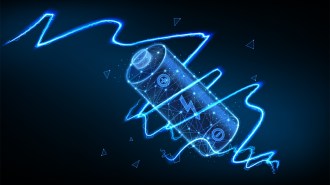 Chemistry
ChemistryZinc-air batteries are typically single-use. A new design could change that
Swapping out the electrolyte in zinc-air batteries helps these next-gen power sources last longer.
-
 Earth
EarthPlastic drinking water pipes exposed to high heat can leak hazardous chemicals
Lab tests exposing commonly used water pipes to wildfire-like heat show damaged pipes can leach the carcinogen benzene and other chemicals.
By Megan Sever -
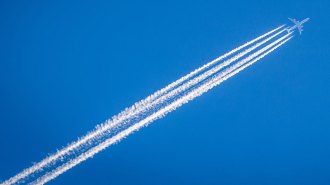 Chemistry
ChemistryA new iron-based catalyst converts carbon dioxide into jet fuel
Jet fuel made from carbon dioxide could one day reduce pollution from air travel.
-
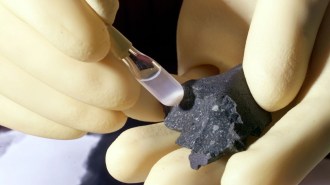 Planetary Science
Planetary Science50 years ago, scientists caught their first glimpse of amino acids from outer space
In 1970, scientists detected amino acids in a meteorite. Fifty years later, a variety of chemical ingredients for life have been found in other space rocks.
-
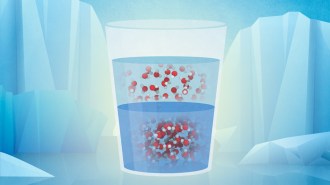 Physics
PhysicsSupercooled water has been caught morphing between two forms
A new experiment used ultrafast techniques to reveal high-density water transforming into low-density water at subfreezing temperatures.
-
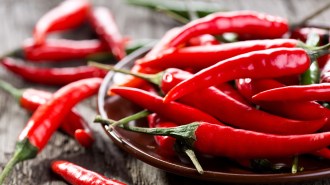 Chemistry
ChemistryA new portable device can reveal a chili pepper’s heat
The “Chilica-pod” measures levels of the fiery capsaicin compound in peppers.
-
 Chemistry
ChemistryHeating deltamethrin may help it kill pesticide-resistant mosquitoes
A simple chemical trick creates a much faster-acting form of a common insecticide, which could help fight malaria and other mosquito-borne illnesses.
-
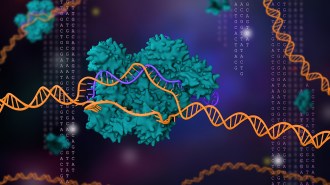 Genetics
GeneticsGene-editing tool CRISPR wins the chemistry Nobel
A gene-editing tool developed just eight years ago that has “revolutionized the life sciences” nabbed the 2020 Nobel Prize in chemistry.
-
 Agriculture
AgricultureHow does a crop’s environment shape a food’s smell and taste?
Scientific explorations of terroir — the soil, climate and orientation in which crops grow — hint at influences on flavors and aromas.
-
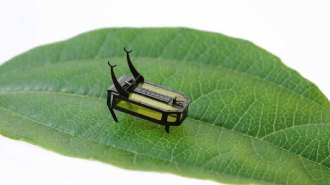 Tech
TechMethanol fuel gives this tiny beetle bot the freedom to roam
A new robot insect uses energy-dense methanol as fuel, not batteries. It could be a blueprint for future search-and-rescue bots with long run times.
By Carmen Drahl -
 Earth
EarthSmoke from Australian fires rose higher into the ozone layer than ever before
The catastrophic wildfires in Australia around New Year’s generated a massive smoke plume that still hasn’t dissipated in the stratosphere.
-
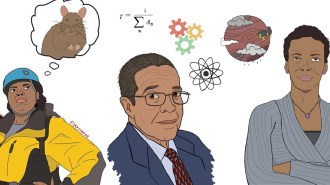 Science & Society
Science & SocietyReal-life scientists inspire these comic book superheroes
Three scientists are publishing comics casting researchers as heroes, and hope the cartoon format and pared-down storyline can boost science literacy.
By Kyle Plantz